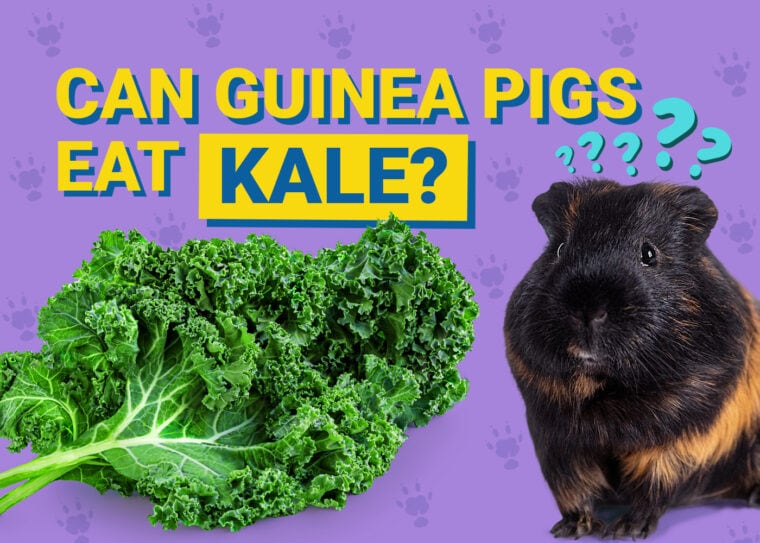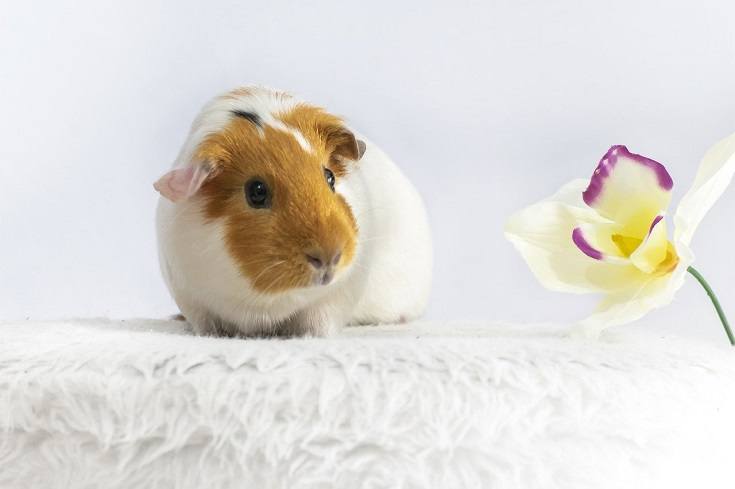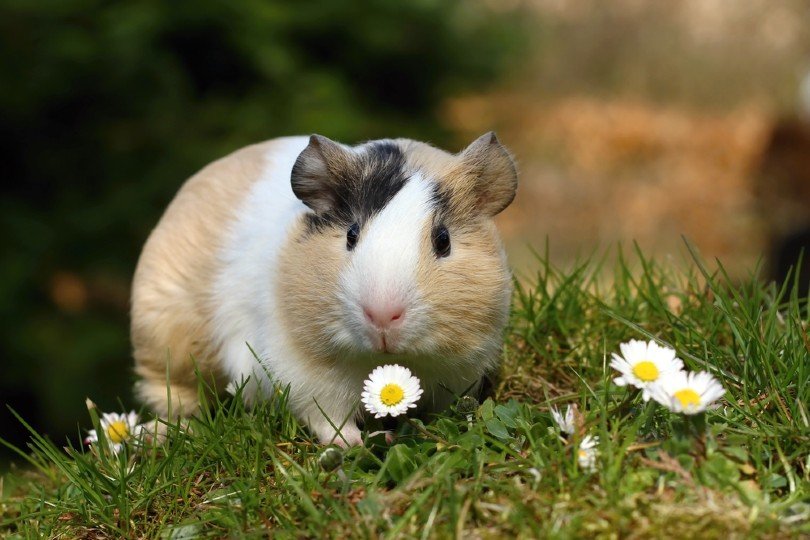
As far as food trends go, kale has been at the top of the vegetable hierarchy for a while now. And what’s not to love? It’s packed with nutrients and it’s darn good too! But what about our beloved guinea pigs? Can they reap the benefits of this superfood?
Yes, guinea pigs can eat kale. It is totally safe in moderation and can even confer significant health benefits to your fluffy buddies!
Read on for an in-depth consideration of kale’s health benefits, how to feed kale to a guinea pig, and the possible dangers you should be aware of.
Kale Nutrition and Fun Facts
The tough, leafy green known as kale belongs to the cabbage genus, Brassica. Kale originated in Asia Minor and the Mediterranean and has been cultivated for food as far back as 2000 B.C. It varies in color from green to purple, and guinea pigs can eat both!
Here are some of the most pertinent parts of the USDA assessment of nutrients present in 100g of raw kale:
Health Benefits of Kale for Guinea Pigs
As a part of a well-balanced diet of hay, vegetables, greens, and fruits, kale is a powerhouse of good vitamins and minerals for guinea pigs!
However, you shouldn’t be feeding kale, kale, and only kale to your piggy. Variety and moderation are the key to a healthy diet for your furry little friends.

Vitamin A
Kale is a leafy green that is rich in vitamin A. This versatile vitamin benefits your guinea pig in many ways! It supports their organ functioning, especially the kidney and liver. Good eyesight, a robust immune system, and skin hydration are also supported by vitamin A.
Vitamin C
Guinea pigs are one of the few mammals that cannot produce their own vitamin C, so including multiple sources in their diet is important. Vitamin C supports healthy hair and skin, a strong immune system, and prevents diseases like scurvy.
Signs of a vitamin C deficiency in your guinea pigs include:
Kale has a moderate amount of vitamin C and makes an excellent supplement to your guinea pig’s vegetable variety.
Vitamin K
Vitamin K plays a critical role in the formation of blood clots. A healthy vitamin K level means that if your guinea pig gets a cut, their body will quickly scab the wound over and heal more efficiently.

Potassium
Kale has lots of potassium, too. This essential mineral contributes to a guinea pig’s regulation of fluids in the body and nerve function.
Potassium has also been found to help reduce the risk of bladder stones, a painful condition that guinea pigs are prone to. Yay for potassium!
Can Kale Be Bad for Guinea Pigs?
In moderation, no!
However, moderation is the key to that consideration. Anything a creature eats in excess can eventually become bad for it. It’s all about the amount present in your guinea pig’s diet.
A leaf of kale amongst their veggie spread a few times a week is perfectly acceptable, and likely beneficial to your guinea pig.
But feeding your little piggy kale, and only kale, as their green veggie regularly and in large amounts could lead to some of the distressing health concerns listed below.
Bladder Stones
Being quite high in calcium, kale also poses the problem of increasing your guinea pig’s risk of bladder stones. Calcium crystalizes in the bladder into hard stones which are incredibly painful to pass.
In moderate amounts, and as part of a balanced diet of greens and veggies, it shouldn’t be a problem. But guinea pigs are particularly susceptible to bladder stones already, so we advise extra caution when adding kale to their diet.

Pesticides
It’s pretty common knowledge these days that pesticides are not good to ingest. These harsh, bug-killing chemicals can be bad for humans, so just imagine how tough they might be for your tiny, sensitive herbivores like guinea pigs.
Don’t worry though, this one is an easy fix!
Buying organic kale from the grocery store or growing it yourself are great ways to avoid having to worry about nasty pesticides altogether. Also, remember to wash all their veggies before serving to remove dirt and insects (even if they are organic), and your piggies will be happy and safe!
How to Feed Kale to Your Guinea Pigs
Guinea pigs should always have their kale served to them raw. These little critters are the original raw vegans, and their bodies are not equipped to digest cooked or seasoned foods.
As with all produce you plan to feed your guinea pig, we recommend washing kale first. A thorough wash will clean it of any stray dirt or pesky little insects that may have hitched a ride.

How Much Kale Should I Feed My Guinea Pigs?
A leaf or two of kale, depending on the size of the fronds, is just the right amount for a guinea pig. Feel free to include it as part of their veggie medley several times a week, though more is inadvisable.
Final Thoughts on Feeding Kale to Your Guinea Pig
Kale is a healthy, delicious leafy green to include in your guinea pig’s diet for a bit of variety. When provided in moderation your guinea pigs will not only love to chomp on kale, they may even receive health benefits.
Bon appétit!










